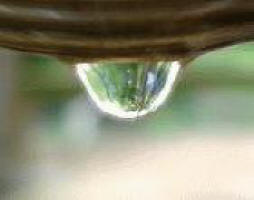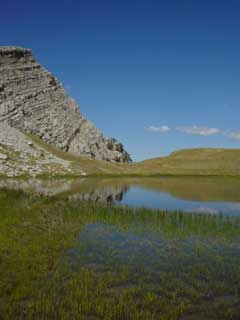 Applicability of Economic Elements of the EU Water Framework Directive to the Sebou Basin
Applicability of Economic Elements of the EU Water Framework Directive to the Sebou Basin
The Sebou river, one of the major rivers in Morocco, covers around
40,000 km2 with a population of 5.2 million people, 53% of which live
in rural areas. From its source, it flows North to Fés and then East to
the Atlantic Ocean; the basin covers the regions of Fès-Boulemane and
Meknès-Tafilalet. The Sebou plays an important socio-economic role in
the country being its basin in a major region for cultivating olives,
rice, wheat, sugar beets, and grapes.
However, it suffers from water quantity and quality problems due to
unsustainable and uncoordinated human activities. Massive pollution due
to agriculture and flanking cities and factories goes along with
over-abstraction and low efficiency of water use for irrigation, which
accounts for 89% of water needs. Sebou river’s aquatic ecosystems and
associated biodiversity are put at high risk. The natural vulnerability
of the area is magnified by the magnitude and extent of interventions;
it is estimated that the increasing degree of environmental pressure
has reduced Sebou's water discharge (approx. 70%) and sediment flux
(approx. 95%) with a dramatic impact on the estuarine zone. In such a
context, the Sebou river basin agency is required to play a crucial
role, but current legal provisions regulating its functions leave a
wide room for interpretation undermining its capacity.
The ecological importance of the Sebou basin is outstanding, with
39 important wetlands (5 of which are classified as international
Ramsar sites), 17 national Sites of Biological and Ecological Interest
(Sites d'Intérêt Biologique et Ecologique - SIBEs) and 2 national
parks. Several of these ecological hotspots are located in the upper
part of the basin, while the lower part the river (through a man-made
connection) feeds the Merja Zerga lagoon which is one of the most
important wetlands of Morocco, particularly for migratory birds.
| Project number | n/a | ||
|---|---|---|---|
| Subject(s) | FINANCE-ECONOMY , POLICY-WATER POLICY AND WATER MANAGEMENT , RIGHT , WATER QUALITY | ||
| Geographical coverage | Morocco, | ||
| Budget (in €) | 0 | ||
| Programme | WWF MEDPO | ||
| Web site | http://www.panda.org/about_wwf/where_we_work/africa/where/morocco/projects/index.cfm?uProjectID=MA0012 | ||
| Objectives |
Objectives
The main objective of the project is to test the different economic
elements of the European Union (EU) Water Framework Directive (WFD) in
the Sebou river basin in Morocco. The different economic elements are
essential for the effective application of the key principles of
Integrated Water Resource Management (IWRM). It is proposed to test all
the economic components of the WFD (article 5, annex III, as well as
article 4 are related to the derogations and to the research of an
optimum balance between environmental protection and economic
development) in the Sebou river basin - although in some cases the test
will have a pure virtual aspect (partially or entirely) - specifically:
|
||
| Results | WWF MedPO has signed a Memorandum of Understanding (MoU) with the Sebou
river basin agency for improving Integrated River Basin Management
(IRBM) and this project will provide key analysis towards that
direction.
|
||
| Period | [01/01/2007 - 31/12/2007] | ||
 you are not logged in
you are not logged in





